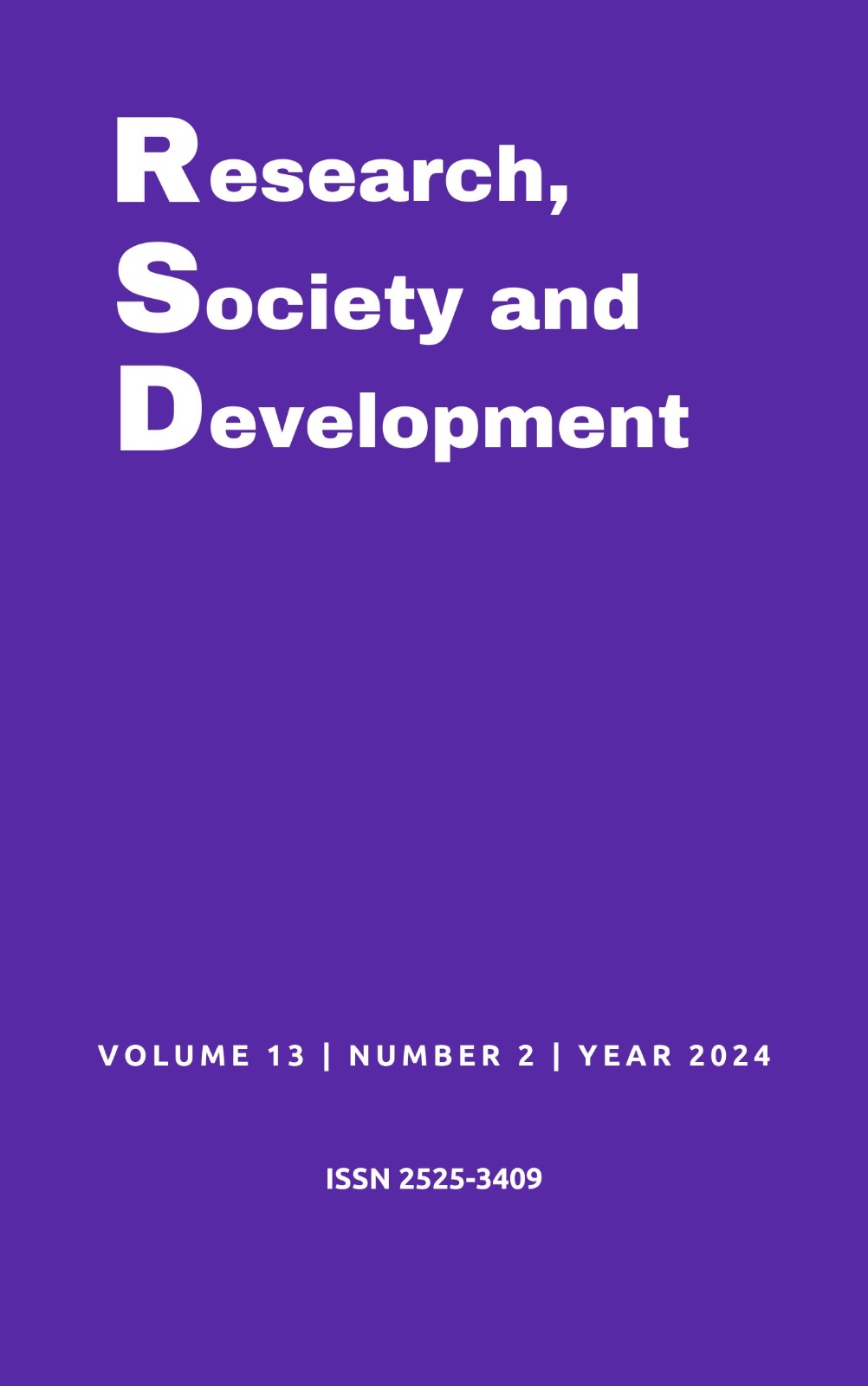Relevance of religiosity and spirituality in medicine
DOI:
https://doi.org/10.33448/rsd-v13i2.44448Keywords:
Spirituality; Integrative medicine; Prognosis; Doctor-patient relationships; Pharmacological treatment.Abstract
Introduction: Spirituality is related to the feeling of transcendence, elevation, sublimity, religious or mystical activity, while religiosity involves the natural tendency towards religious feelings and sacred things. Both are unique factors for the promotion, prevention and recovery of health. They have an influence on improving quality of life, to the point of reducing the use of health services and contributing to maintaining a healthy lifestyle for the most compromised individuals. Objective: The work intends to evaluate the impact of faith, spirituality and religiosity for individuals in a situation of illness, and how it influences the way of dealing with this scenario. Methodology: This is an integrative literature review carried out between December 2022 and January 2023 in the following databases: National Library of Medicine (PubMed MEDLINE), Scientific Electronic Library Online (Scielo), Google Scholar, Biblioteca Virtual Health (VHL), Web of Science and EBSCO Information Services. Results and discussion: It was clearly explained that religiosity and spirituality go together for a good prognosis for the patient, many individuals express that the professional's support in their beliefs alleviate their suffering and anxieties. Final considerations: Most articles describe the influence of R/S on the improvement of the patient, as a whole, with better coping with the disease, increased well-being, purpose, etc. without any association or definition of prognosis or therapy.
References
Andersen, A. H. et al. (2020). Maybe we are losing sight of the human dimension’–physicians’ approaches to existential, spiritual, and religious needs among patients with chronic pain or multiple sclerosis. A qualitative interview-study. Health Psychology and Behavioral Medicine. 8 (1), 248-269.
CFM. (1990). Código de ética médica. Resolução nº 1.246/88. Brasília: Conselho Federal de Medicina (CFM - Brasil).
Chow, H., Chew, Q. H., & Sim, K. (2021) Spirituality and religion in residents and inter-relationships with clinical practice and residency training: a scoping review. BMJ open. 11(5), e044321.
Da Silva Thiengo, P. C. et al. (2019). Espiritualidade e religiosidade no cuidado em saúde: revisão integrativa. Cogitare Enfermagem. 24, e58692. https://doi.org/10.5380/ce.v24i0.58692
De Moraes, W. A. (2010) Medicina e espiritualidade. Arte Médica Ampliada. Volume (3).
Ferreira, L. F. et al. (2020). A influência da espiritualidade e da religiosidade na aceitação da doença e no tratamento de pacientes oncológicos: revisão integrativa da literatura. Revista Brasileira de Cancerologia. 66 (2).
Fongaro, A. V. (2019) Anamnese espiritual enquanto um protocolo clínico. XXVIII Congresso Virtual de Iniciação Científica da Unicamp.
Galvão, M. C. B., & Ricarte, I. L. M. (2019). Revisão sistemática da literatura: conceituação, produção e publicação. Logeion: Filosofia da informação. 6(1), 57-73.
Lourenço, M., Encarnação, P., & Lumini, M. J. (2021) Cuidados paliativos, conforto e espiritualidade. Autocuidado: Um Foco Central da Enfermage. (85-98).
Lucchetti, G. et al. (2010) Espiritualidade na prática clínica: o que o clínico deve saber. Revista Brasileira Clinica Medica. 8(2), 154-8.
Mendes, I. S. et al. (2021) Revisão narrativa acerca da influência da espiritualidade na saúde cardiovascular. Brazilian Medical Students. 6(9).
Menegatti-Chequini, M. C. et al. (2020) Patterns of religiosity and spirituality of psychiatrists in Brazil and the implications for clinical practice: a latent profile analysis. BMC psychiatry. 20(1), 1-11.
ProSER IPq - HC - FMUSP. (2020) Anamnese Espiritual: Importância e efeitos terapêuticos. YouTube.
Ransome, Y. (2020) Religion, spirituality, and health: new considerations for epidemiology. American journal of epidemiology. 189(8), 755-758.
Rocha, A. C. A. L. da, & Ciosak, S. I. (2014) Doença crônica no idoso: espiritualidade e enfrentamento. Revista da Escola de Enfermagem da USP. 48(87-93).
Ruthes, V. R. M. (2019) Integração da espiritualidade nos cuidados em saúde: considerações teórico-epistemológicas. Perspectiva Teológica. 51(3), 481-481.
Silva, L. M. F., & Scorsolini-Comin, F. (2020) Na sala de espera do terreiro: uma investigação com adeptos da umbanda com queixas de adoecimento. Saúde e Sociedade. 29, e190378.
Silva, L. G. et al. (2020) Relação entre medicina e espiritualidade/religiosidade: impacto no processo de adoecimento. Revista Uningá. 57(4), 93-100.
Silva, S. R. B. (2014) Estratégias da religiosidade/crença utilizadas por pacientes e familiares em situação de adoecimento e morte. Trabalho de Conclusão de Curso (Graduação em Enfermagem) – Faculdade Maria Milza.
Uhelski, A. et al. (2022) Spirituality and satisfaction with physicians among hospitalized patients. Journal of Health Care Chaplaincy. 28(1), 21-28.
Zonta, B. P. S., Vernaglia, T. V. C., & Sória, D. de A. C. (2020) A influência da Religiosidade/Espiritualidade na terapêutica e prognóstico de pacientes com transtornos mentais: uma revisão integrativa. Research, Society and Development. 9 (11), e2889119784-e2889119784.
Downloads
Published
How to Cite
Issue
Section
License
Copyright (c) 2024 Rodrigo Claudino Amaral; Emilayne Nicácio Dias Brito; Ulisses Rezende Brandão

This work is licensed under a Creative Commons Attribution 4.0 International License.
Authors who publish with this journal agree to the following terms:
1) Authors retain copyright and grant the journal right of first publication with the work simultaneously licensed under a Creative Commons Attribution License that allows others to share the work with an acknowledgement of the work's authorship and initial publication in this journal.
2) Authors are able to enter into separate, additional contractual arrangements for the non-exclusive distribution of the journal's published version of the work (e.g., post it to an institutional repository or publish it in a book), with an acknowledgement of its initial publication in this journal.
3) Authors are permitted and encouraged to post their work online (e.g., in institutional repositories or on their website) prior to and during the submission process, as it can lead to productive exchanges, as well as earlier and greater citation of published work.

